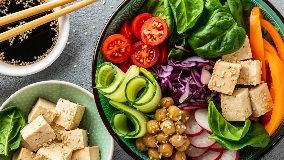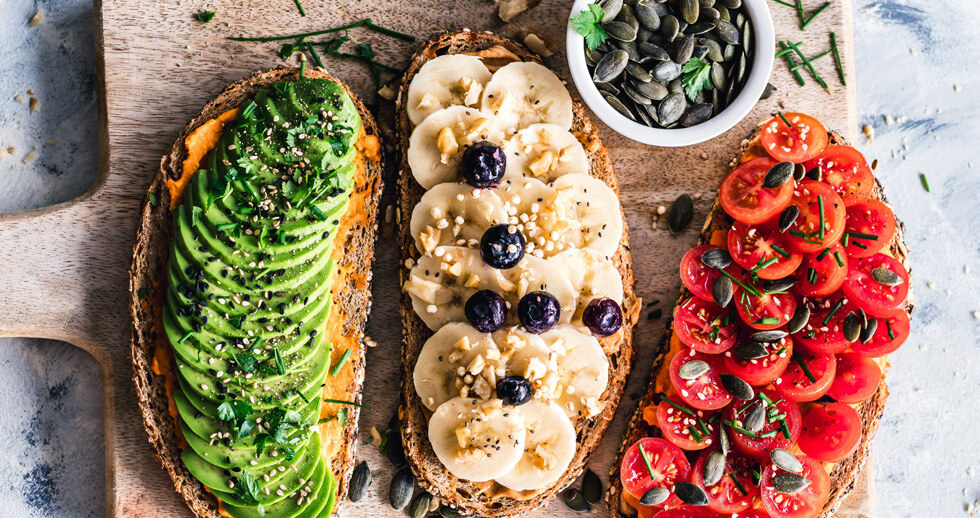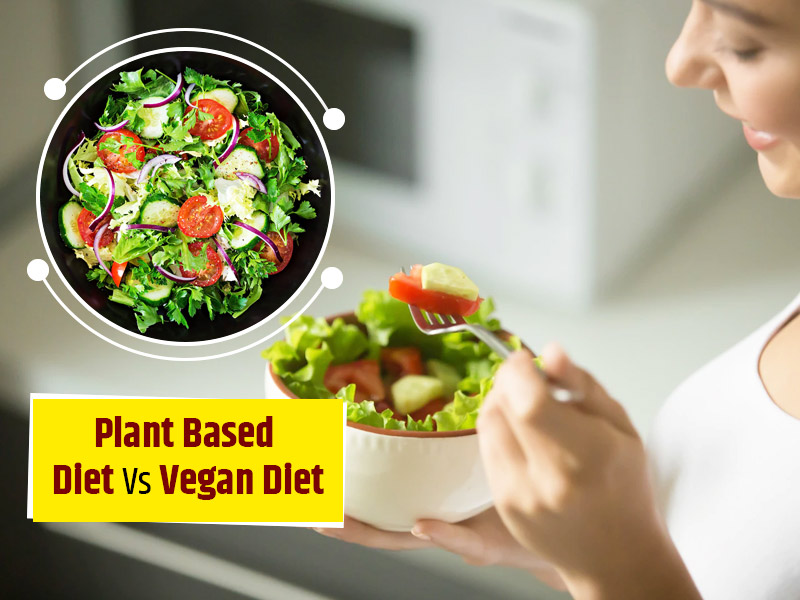
Iron is an essential mineral that supports cellular health and metabolism. It can be found in a variety of foods such as meats, poultry, seafood, dark green vegetables, and other animal products.
Heme iron, which is found mainly in animal products, is more easily absorbed than non-heme iron. It is often more difficult for vegetarians and vegans to get the correct amount of iron.
Spinach is rich in iron
Iron is an essential mineral which helps transport oxygen to all cells in your body. For vegetarians and vegans, iron deficiency could pose a serious health problem.
But it is important for you to know that iron can come in many different kinds of foods. This is why it's important to ensure you get enough iron-rich foods.
Spinach is one the richest foods in nutrients. It contains many vitamins, minerals and antioxidants. These nutrients have been proven to reduce your risk of developing cancer, heart disease, or other diseases. They also promote healthy skin, eyesight, and eye health.
It's also a good source of lutein (and zeaxanthin), two pigments that can protect your eyes and prevent damage from blue lights. Zeaxanthin and lutein are especially good for your eyes as they help reduce the risk of macular damage, cataracts, and other eye problems.
It is possible to add spinach in a variety dishes such as salads, green smoothies, and grain bowls. You can even use it to boost the flavour of soups, casseroles, pasta, and other meals.
Although it is a rich source of iron, you should be careful about how much spinach you eat. Oxalates are a common component of spinach, which can hinder your body's ability to absorb it. You should wash spinach carefully before eating to get rid of any dirt or grit that could hinder iron absorption.
It's a good source for vitamin A
Vitamin A, an essential nutrient for good overall health, is also a vital component in the immune system. It is found in a wide variety of foods, including leafy green vegetables, apricots, carrots, mangoes, cantaloupe, avocados, eggs, raw milk and cheeses, cod liver oil and organ meats like liver.
It is also an fat-soluble vitamin. Therefore, it is easier to absorb when it is eaten along with other fat sources such as avocado and nuts. The best source of this nutrient is spinach, which can provide over 9% daily.
But, vegans and vegetarians can still struggle to obtain sufficient iron from their diet. Because non-heme iron is not as well absorbed by the body as heme iron, they may need to take iron supplements as part of their routine.
There are many iron supplement options on the market. Many are made for vegetarians or vegans. They provide the correct amount of iron in tablets, liquid drops, or gummies.
Talking to your doctor about the proper dose is the best way for you to find the right iron supplement. They can test your blood for iron and recommend the best supplement for you.
PlantFusion's Complete Iron, a budget-friendly option, contains 18 mgs of fermented Iron Bisglycinate per pill. The formula is free of gluten and contains no artificial ingredients or preservatives. Amazon reviewers rate this product as easy on the stomach and recommend that one tablet be taken daily.
It's a great source of vitamin A

Iron is crucial nutrient to vegans. Iron helps the body make hemoglobin. It's a protein found in red blood cell membranes that transports oxygen throughout our bodies. It plays an important role in the manufacture of hormones, and other proteins.
There are two types: non-heme and heme iron. Heme iron has a higher bioavailability, so it's easier for your body to absorb.
It is vital that vegans have sufficient iron. They may be more prone to iron deficiency because of their diet.
The good news is that iron can be absorbed by the body through vitamin C. This nutrient is found in a number of plant foods, such as citrus fruits, tomatoes, peppers, potatoes and berries.
Vitamin C not only increases iron absorption but also stimulates the production collagen and other proteins in the bones. It also helps your body form blood vessels, muscle and cartilage.
Vitamin C-rich foods like spinach are the best source of iron. But, remember that cooking can cause spinach to lose up to 18.3% of its vitamin-C content.
It is a great source of vitamin k
Vitamin K plays a critical role in blood circulation and bone health. Vitamin K is also known to protect against heart disease and prevent cancer. You can get your daily requirement of Vitamin K from spinach and kale as well as collard greens or other leafy vegetable.
Spinach, a popular green leafy vegetables, is rich both in vitamin K1 as well as vitamin K2 forms. You can easily incorporate it into your diet by adding it to salads and other dishes.
Vitamin K can also be found in fermented foods such as pickles, sauerkraut, and natto. Vitamin K1 rich soy products as well as cheese can help vegans get the recommended daily intake.
Vegetarians and vegans are often affected by iron deficiency. It occurs because plant-based sources of iron are not as easily absorbed as heme iron in animal-based foods.
However, you can boost your iron levels by taking a vegan iron supplement. They come in many forms, including tablets or liquid drops. Many contain vitamin C which can significantly increase iron absorption.
It is important to find iron supplements that are safe for vegans. It is important not to take in too much iron as this can lead to liver damage.
The most convenient option for most people is Garden of Life Complete Iron, which comes in fast-melting tablets that taste delicious and are easy on the stomach. This vegan-friendly formula also contains added B12 and folate, which can aid in iron absorption.
It's a good source for calcium
Iron is a mineral essential for proper growth, development, and oxygen delivery throughout your body. It comes in two forms: heme (from animal protein) and non-heme (plant-derived).
Heme iron, which can be found in meat, and other animal-based products, is more efficiently absorbed than non-heme plant-sourced iron. Because it is not absorbed as quickly, vegetarians often need more sources of iron than omnivores to keep their bodies healthy.
Iron can be found in a variety of foods, including fruits, vegetables, legumes, whole grains, seeds, nuts, and seeds. However, if you're vegan or on a strict vegan diet, you should consider taking an iron supplement to ensure that you get enough of this essential nutrient.

Calcium, which is essential for your health, plays a crucial role in bone and tooth health. While milk and other dairy foods are the richest sources of calcium, you can find it in many other foods, including fruits, leafy greens, beans, and nuts.
Spinach is a good source of calcium as it has more than 250mg per cup. Spinach is also rich in vitamin K which increases calcium absorption.
Spinach is a good source of iron and other nutrients, but it also has oxalic acid, an organic compound that interferes with the absorption of minerals in your body. This can lead to serious nutritional deficiencies.
It is a good source of lutein
Lutein can be found in many fruits and vegetables including dark leafy veggies. It can also be found as an ingredient in eggs, nuts, and fortified foods, such as juices.
It is found in the retina and macula of the eye and protects them from damage. It helps to prevent macular degeneration, an age-related disease that causes blurry vision and blindness.
The best way to get enough lutein is to eat a healthy diet with plenty of colorful vegetables and fruit. Consume at least 2 servings of lutein rich foods each day.
Lutein is also found in spinach, kale and other leafy leaves. They also contain plenty vitamin C, which improves iron absorption.
High-quality lutein supplements can be a good way to increase your lutein intake. These supplements can be purchased in a variety of shops and online.
These supplements may be used daily, or for a specific purpose. These supplements can protect your eyes from UV rays, prevent oxidative stress and reduce the risk of cataracts.
Lutein can be beneficial for people with macular degeneration or those at high risk. Lutein is an antioxidant that protects the eyes against damaging free radicals and toxins.
It may lower your chances of getting certain types of cancer, improve memory, learning, and verbal fluency. It may be helpful in maintaining healthy skin, lungs, and can lower your risk for heart disease and diabetes.
FAQ
Exercise: Good or bad for immunity?
Exercise is good exercise for your immune system. When you exercise, your body produces white blood cells which fight off infections. You also get rid of toxins from your body. Exercise is a great way to prevent diseases such as cancer and heart disease. It also reduces stress levels.
But too much exercise can damage your immune system. You can cause muscle soreness by working out too hard. This causes inflammation and swelling. Your body then has to produce more antibodies to fight off infection. The problem is that these extra antibodies can cause allergies and autoimmune disorders.
So, don't overdo it!
What is the difference between calories and kilocalories?
Calories measure the amount energy in food. Calories is the unit of measurement. One calorie is equal to one degree Celsius in energy.
Kilocalories refer to calories in another way. Kilocalories measure in thousandths (or calorie) of a calorie. 1000 calories are equal to one kilocalorie.
Why do we need to have a healthy lifestyle?
A healthy lifestyle will help us live longer and happier lives. Good nutrition, exercise regularly, good sleep habits, and stress control can help you avoid diseases such as heart disease and stroke.
A healthy lifestyle will also improve our mental health by helping us cope better with everyday stresses. Having a healthy lifestyle will also boost our self confidence and help us look and feel younger.
What is the difference of a virus from a bacteria?
A virus, a microscopic organism that can not reproduce outside of its host cells, is called a virus. A bacterium is an organism that splits itself in two. Viruses measure only 20 nanometers in diameter, but bacteria is up to 1 millimeter in size.
Viruses are usually spread through contact with infected bodily fluids, including saliva, urine, semen, vaginal secretions, pus, and feces. Bacteria are often spread via direct contact with contaminated surfaces and objects.
Viral infections can be transmitted through skin cuts, scrapes and bites. They can also enter the body through the nose and mouth, eyes, ears or rectum.
Bacteria can enter our bodies through wounds, cuts, scrapes, burns, insect stings, or other breaks in our skin. They may also be introduced into our bodies through food and water as well as soil, dirt, dust, and animals.
Viruses and bacteria both cause illness. Viruses cannot multiply in their host cells. They can only infect living cells and cause illness.
Bacteria may spread to other people and cause sickness. They can spread to other parts of our bodies. They can even invade other parts of the body, which is why antibiotics are necessary to eradicate them.
Increase immunity with herbs or supplements
It is possible to boost immune function by using herbs and natural remedies. Some common examples include garlic, ginger, oregano oil, echinacea, ginkgo biloba, and vitamin C.
However, these herbal remedies should not replace conventional medical treatment. They may cause side effects such as nausea, diarrhea, stomach cramps, headaches, dizziness, and allergic reactions.
Statistics
- Extra virgin olive oil may benefit heart health, as people who consume it have a lower risk for dying from heart attacks and strokes according to some evidence (57Trusted Source (healthline.com)
- The Dietary Guidelines for Americans recommend keeping added sugar intake below 10% of your daily calorie intake, while the World Health Organization recommends slashing added sugars to 5% or less of your daily calories for optimal health (59Trusted (healthline.com)
- In both adults and children, the intake of free sugars should be reduced to less than 10% of total energy intake. (who.int)
- According to the 2020 Dietary Guidelines for Americans, a balanced diet high in fruits and vegetables, lean protein, low-fat dairy and whole grains is needed for optimal energy. (mayoclinichealthsystem.org)
External Links
How To
What does the meaning of "vitamin?"
Vitamins can be described as organic compounds found in food. Vitamins are essential for our bodies to absorb nutrients from the foods we eat. Vitamins cannot be produced by the body. They must be obtained from food.
There are two types of vitamins: water soluble and fat soluble. Water-soluble vitamins dissolve readily in water. You can find vitamin C,B1 or thiamine, B2 or riboflavin and B3 or niacin. B6 is pyridoxine. Folic acid, biotin and pantothenic are some examples. Fat-soluble vitamins are stored within the liver and in fatty tissue. Vitamin D, E, K and A are some examples.
Vitamins are classified based on their biological activity. There are eight major vitamin groups:
-
A - vital for normal growth and maintaining good health.
-
C - essential for proper nerve function, and energy production.
-
D – Essential for healthy teeth, bones and joints
-
E is needed for good reproduction and vision.
-
K - Essential for healthy muscles and nerves.
-
P – Vital for building strong bones.
-
Q - aids in digestion of iron and iron absorption
-
R is required for the production of red blood cells.
The recommended daily allowance (RDA), for vitamins, varies based on gender, age, and physical condition. The U.S. Food and Drug Administration sets RDA values.
For example, the RDA for vitamin A is 400 micrograms per dayfor adults 19 years or older. Pregnant mothers need 600 micrograms a day to ensure fetal growth. Children ages 1-8 require 900 micrograms per day. Infants below one year of age need 700 micrograms daily. But, between 9 months to 12 months of age, the amount drops to 500micrograms per days.
Children aged 1-18 years need 800 micrograms daily, while children overweight require 1000 micrograms per days. Children who are severely obese or underweight will need 1200 micrograms each day.
Children between 4-8 years of age who have been diagnosed by anemia must consume 2200 micrograms daily of vitamin C.
2000 micrograms daily is required for adults over 50 to maintain their general health. Mothers who are pregnant, nursing, or have a high nutrient need will require 3000 micrograms a day.
Adults over 70 require 1500 micrograms each day, since they lose approximately 10% of muscle mass each decade.
Women who are pregnant and lactating need more nutrients than the RDA. Pregnant women require 4000 micrograms daily during pregnancy, and 2500 micrograms every day after birth. Breastfeeding mothers need to consume 5000 micrograms each day when breastmilk has been produced.